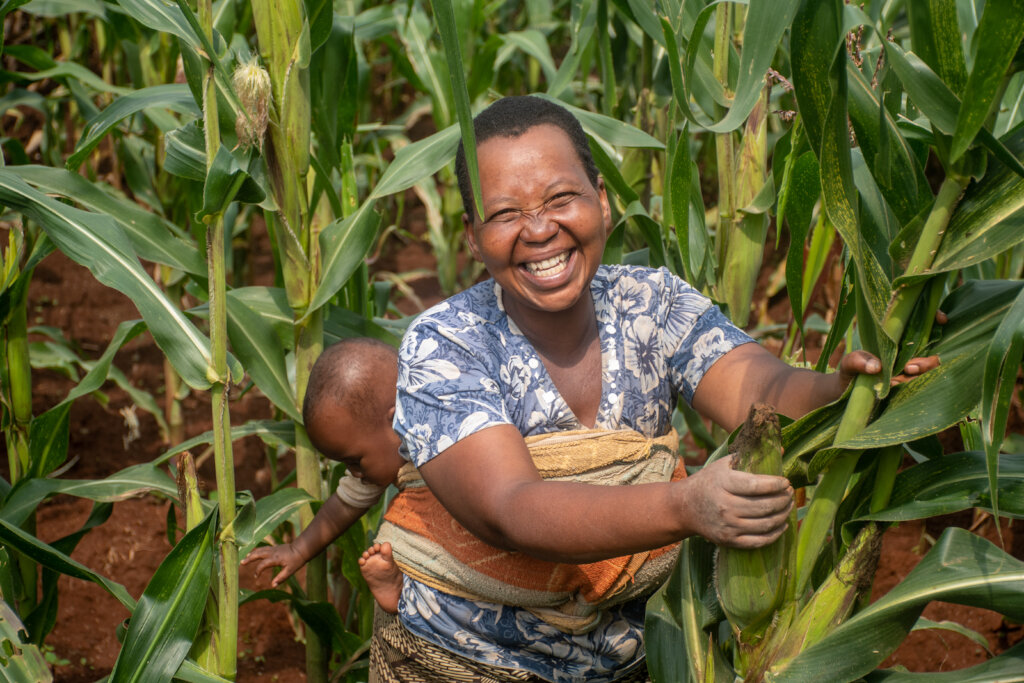- Farming in Kenya isn’t a fallback,it’s a future. But only for those who treat it like the business it is. Don’t chase trends; chase traction. Pick the right product. Set up your systems. Start small, but build with intention. Invest in skills and relationships that compound over time.
Starting a small farm in Kenya isn’t about owning acres of land or inheriting a legacy. It’s about catching a shift responding to the pressure of food demand, the rise of urban markets, and the hunger for local control.
You don’t need to be a legacy farmer; you need to be nimble. You need to see the space between what communities eat and what they wish they could eat fresher, faster, cheaper. Starting small gives you room to experiment. But turning it into a business? That’s the real win.
Find Your Fit in Kenya’s Farming Boom
Don’t start farming just to “get into farming.” Start where your curiosity meets local demand. It might be rabbits, onions, avocados, or tilapia—but whatever it is, the smartest move is identifying crops or livestock that thrive in your zone and sell in your town.
Kenya’s farming landscape is wider than many realize. Whether it's dryland fruit orchards or urban backyard poultry, success starts with choosing well. Spend time studying agribusiness demand in Kenya you’ll see quickly that profitability is often less about scale and more about specificity.
Set It Up Like a Business (Because It Is One)
It’s tempting to treat your farm like a weekend project. But the moment you sell an egg, it becomes a business. Don’t skip the basics: register a business name, open a farm-only account, set up digital payments. Even if you’re selling sukuma wiki to neighbors, your farm should have structure.
You’ll gain credibility, access to financing, and keep your records clean. To do that, you need to register your farm formally. Paperwork might not be sexy, but access to government tenders and agri-loans definitely is.
Stack Your Skills, Not Just Your Seeds
Running a farm today means doing math, marketing, inventory, forecasting, and probably sending out M-PESA requests. Farming is business. If you want to grow faster than trial and error allows, consider strengthening your foundation with formal training.
It doesn’t have to be full-time or in-person. An online bachelor in business and management can teach you how to track revenue, understand customer behavior, and plan for sustainability skills that help farms grow into enterprises.
Start Small, Spend Smart
You don’t need a greenhouse worth Ksh 500,000 or five acres of irrigation to start. What you need is strategy. Begin with a micro-pilot: one plot, a few chickens, a tank, a phone. Then refine. Tighten your input-output ratio. Build trust with five customers before trying to reach fifty.
Many successful Kenyan agripreneurs started with nothing more than a backyard and determination. There are dozens of low-capital agribusiness options that let you test your model before you overcommit. The less you gamble up front, the more you get to learn without burning out.
Build Toward Profit, Not Just Production
Harvesting is fun. But money comes from systems. As you scale, think like a business owner—not just a grower. Are you pricing based on market gaps or tradition? Are you planning for perishables or hoping for luck? Have you mapped out transport, bulk buyers, or a backup sales route?
Your job is to turn consistency into margin. The most successful farmers are those who treat every season as a data cycle. If you're unsure what products are worth your time, study most profitable farming ideas right now to prioritize your energy.
Look Beyond Your Wallet for Support
Most first-time farmers try to bootstrap everything. And while hustle is powerful, leverage is smarter. There are real opportunities if you know where to look.
From digital lending apps to government-backed grants and agri-focused accelerators, Kenya’s support landscape is maturing fast. You’re not just growing crops; you’re solving food problems, creating jobs, stabilizing supply chains. That’s fundable.
Start exploring how to unlock agribusiness funding in Kenya today and position yourself as a serious player, not just a hopeful grower.
Collaborate to Go Farther, Faster
Isolation slows progress. The smartest small-scale farmers are the ones who join forces digitally, locally, commercially. Co-ops aren’t just old-school; they’re powerful. They help members access bulk pricing, negotiate with buyers, and reach new markets. Plus, when you’re part of a network, you don’t have to learn every lesson the hard way.
You can join cooperative networks for market access that amplify your reach, spread your risk, and unlock tools solo farmers rarely access on their own.
Farming in Kenya isn’t a fallback,it’s a future. But only for those who treat it like the business it is. Don’t chase trends; chase traction. Pick the right product. Set up your systems. Start small, but build with intention. Invest in skills and relationships that compound over time.
The profits don’t come overnight but the progress is real, and the market is waiting. Your first harvest might not be cash-heavy, but your third could be life-changing—if you start smart, stay sharp, and keep building.






-1769677767.jpg)